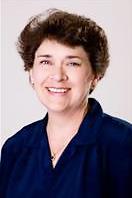March 2020 Health Policy Meeting Report by Dr. Linda Frye
Posted almost 6 years ago by Sarah Scheuermann
March 2020 Health Policy Meeting Report
Child Health Policy Learning Collaborative Call March 4:
Dr Paul Wise from Stanford University spoke on Advocating for Children in Areas of Conflict: Humanitarian Consequences for Children in War & Conflict. Dr Wise spoke about the number of children in areas of war and conflict and how humanitarian care is lagging leading to consequences for the affected children. The direct effect related to bombs, etc. is easy to track, but the morbidity is difficult to assess along with the profound mental health effects. These children are affected by the loss of things necessary for life which can be more devastating than the direct effects of war. We need to be aware of these children and do all we can to support and provide humanitarian resources and care. This includes children and families at the border.
Rhode Island Basic Emergency and Response Skills Legislative Bill: I was asked to read and provide feedback on the proposed BEARS legislation in Rhode Island. In RI, high school students are required to take basic emergency and response skills including CPR, stop the bleed, etc. Teachers and staff are not required to have the same training. The bill proposed 80% of faculty and staff receive the training. I agree with the proposed legislation and contacted our 3 members in RI offering support. I believe this is an excellent bill and believe it would be good to poll our members across the country to determine how many states require this training for their students and/or faculty.
Health Policy Call March 18:
State Reports: Florida: Barrier reduction bill passed both houses and was sent to the governor to be signed into law
South Carolina: Restrictions for APRN reimbursement for telehealth loosened due to Covid-19 to increase access to care. One of the issues is the lack of internet services for patients seeking telehealth care. SC is mobilizing internet enabled school buses into areas with poor internet access for children to do their schoolwork. APRNs are going to see if they can piggyback onto the busses to improve access to telehealth services.
Nationally: There is a concern among soon to graduate APRN students having difficulty completing clinical hours due to the Covid-19 emergency. Several groups are working on this issue. Please notify me if you are aware of any problems or methods to assist these students.
Dave Mason: Covid-19 is the major focus in Washington DC. The senate approved HR 6201, a $100 billion package that would provide paid sick leave and emergency leave. The bill was sent to the president for his signature. This is the phase 2 bill. Phase 1 was signed 12 days ago and provided $8.3 billion for diagnostic tools and vaccine among other items for Covid-19. The focus now is on a $1.2 - $1.3 billion package to provide $1000 checks to individuals and businesses hurt by Covid-19. There will be a lot of discussion on this proposed legislation. One of the other items that will be included in this bill is addressing nurses concerns about testing and PPE supplies.
Immigrants with Covid-19 symptoms can seek medical care without fear it will be health against them. On the other side of the coin, asylum seekers coming across the US-Mexico border are being turned away due to the risk of Covid-19 in the detention centers and for border patrol agents.
The current medical situation in this country with Covid-19 provides an excellent opportunity for nurses to support the president’s order to remove barriers to practice and the ability to practice at the full education level including increased access to care via telehealth.
Several other medical and nursing legislation issues are still in need of support, but on the back burner due to Covid-19.
A bill was introduced in the legislature to permanently extend CHIP.
On 6/18, tobacco and e-cigarette labels must include graphic images and 20% of their advertising must include graphic images of the dangers/hazards/consequences of using these products.
Linda Frye
Linda Frye, PhD, RN, CPNP
Immediate Past e-Chapter President
lindafrye@yahoo.com
Meet Dr. Linda Frye:
Dr. Frye has been a nurse since 1978 when she graduated from Conemaugh Valley Memorial Hospital School of Nursing, a hospital-based RN program. She earned her BSN in 1987 from Marymount College in Salina, Kansas, her MSN in pediatrics in 1996 from Georgia State University in Atlanta, GA, and her PhD in nursing from the University of Texas at Arlington in 2014. She has been certified as a Pediatric Nurse Practitioner since 1997.
Dr. Frye has taught nursing since 2005 at Kennesaw State University in Kennesaw, GA, Georgia State University in Atlanta, Ga, Weatherford College in Weatherford, TX, and the University of TX at Arlington. Her teaching interest is pediatrics. She enjoys working with students helping them put together their pieces of clinical information to form a picture of their patient, their diagnosis, and treatment plan.
Dr. Frye's program of research focuses on the developmental, behavioral, and mental health (DBMH) of children. Her dissertation was Father’s Experience with Autism Spectrum Disorder. The goal was to understand the experience of having a child with autism from the father’s perspective, to help identify their needs to overcome the challenges of autism, and help the fathers reach resilience. Her most current research focuses on the effects of toxic stress on the developing brain and providing care to help the child become resilient after the trauma.
In 2011, Dr. Frye received the Distinguished Alumni Award from Conemaugh Valley Memorial Hospital School of Nursing. In 2014, She also received the Ferne Kyba Nursing Fellowship at UTA. In addition to her role as president of the e-Chapter, Dr. Frye is actively involved in several leadership roles within NAPNAP and serves as a reviewer for the Journal of Nursing Scholarship.

